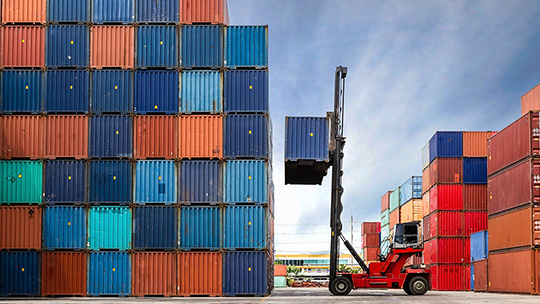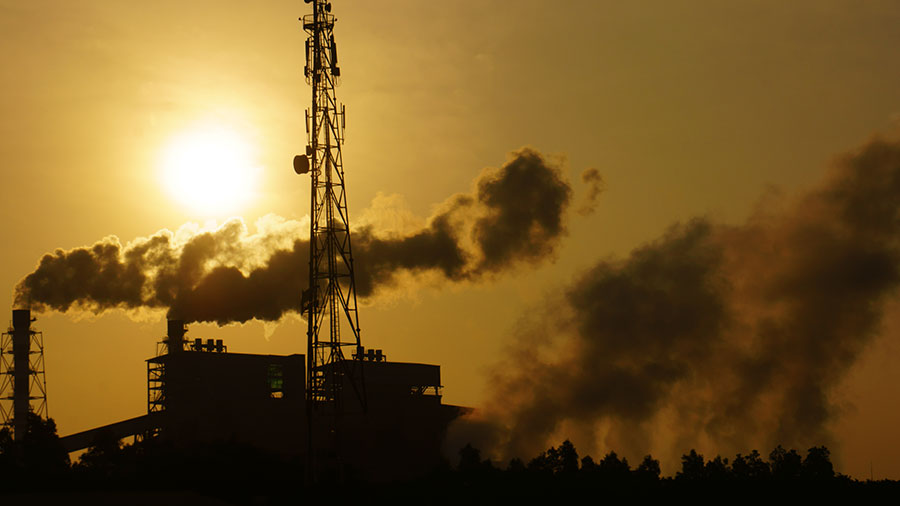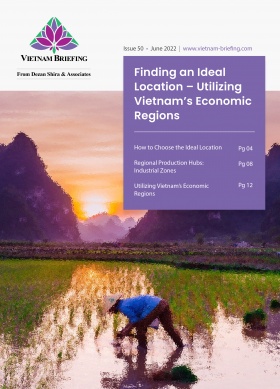Impact of the Uyghur Forced Labor Prevention Act on Vietnam Exports to the US
Vietnam Briefing explores the implementation of the Uyghur Forced Labor Prevention Act and its impact on Vietnam companies exporting products to the US. The evidence suggests that Vietnamese firms will need to wean themselves off raw materials produced in China’s Xinjiang in order to ensure long-term access to the US market.
On June 21, US Customs and Border Protection (CBP) started enforcing the Uyghur Forced Labor Prevention Act (UFLPA). The act was passed in December 2021 and prohibits the importation of goods wholly or in part mined, produced, or manufactured in the Xinjiang Uyghur Autonomous Region (XUAR) of China.
As its name suggests, the act was introduced in response to the alleged practice of forced labor in Xinjiang. The province is home to millions of Uyghurs – a Turkic group who predominantly follow Islam. In addition, the US, along with its Western partners, contend that Uyghur peoples are being transported from their home province and forced to work against their will elsewhere in China.
Vietnamese companies have been identified as intermediaries using raw materials sourced in the XUAR. The continued use of these materials will result in these companies losing access to the US market. Cotton, tomatoes, and silica-based products produced, even in part, in the XUAR were already subject to US import bans. However, UFLPA puts the onus on the importer to prove that the goods being imported did not benefit, at any point, from forced labor in the XUAR or are linked to a blacklisted entity.
What is the Uyghur Forced Labor Prevention Act?
The Uyghur Forced Labor Prevention Act establishes a “rebuttable presumption” that goods mined, produced, or manufactured wholly or in part in the XUAR, or by certain identified entities, are made using forced labor. As a result, these goods can no longer be imported into the US. The act contains a de minimis exception, which means that if any part of the good, no matter how small, is produced in the XUAR or by identified entities, the final product will be subject to the rebuttable presumption.
The UFLPA reinforces Section 307 of the Tariff Act of 1930, which prohibits the importation of all “goods, wares, articles, and merchandise mined, produced, or manufactured wholly or in part in any foreign country by convict labor or/and forced labor or/and indentured labor under penal sanctions.”
However, importers can still import goods mined, produced, or manufactured wholly or in part in the XUAR, if they meet certain criteria. The UFLPA requires that importers show “a high burden of proof” in order to demonstrate that no part of the goods they wish to import were produced using forced labor.
On June 17, 2022, the inter-agency Forced Labor Enforcement Task Force (FLETF) published its enforcement strategy under the UFLPA to support implementation and guide importers.
What will be the impact of UFLPA on global supply chains?
The act is likely to have a considerable impact on several industries, notably the textiles industry and specifically those believed to be using Xinjiang-sourced materials in their production. Countries and companies which continue to allow Xinjiang-sourced materials into their supply chains will no longer be able to access the lucrative US market.
Vietnam is heavily dependent on raw materials from China, particularly in the textiles industry. And it has been reported that Vietnamese producers have been “laundering” cotton from the autonomous territory.
Cotton is a major export of the XUAR, reaching markets around the world. Xinjiang cotton accounts for 84 percent of China’s exports of the product. According to the New York Times, unprocessed cotton is exported to 14 countries, including Vietnam, Thailand, India, Pakistan, and Bangladesh. Meanwhile, yarn is exported to 190 countries. The fashion industry has been told that it must wean itself off Xinjiang cotton.
The UFLPA also extends to entities that are not necessarily active in the XUAR. This includes several Chinese firms noted in a 2020 report by the Australian Strategic Policy Institute (ASPI). The document identified 83 foreign and Chinese companies that allegedly, directly or indirectly, benefit from the use of Uyghur workers outside Xinjiang through potentially abusive labor transfer programs. The report suggests that Beijing has facilitated the mass transfer of Uyghur from Xinjiang to factories across the country.
At this moment in time, the entities list is pretty sparse and only includes companies that had already been blacklisted by the US. Notably, no downstream solar cell or solar module producers have been added to the UFLPA Entity List, although several Chinese polysilicon firms are listed.
Which industries will be directly or indirectly affected?
The XUAR has prominent sectors in electronics manufacturing, textile and apparel manufacturing, rare earth mining, agricultural production, and plastics production. However, the FLETF strategy identifies four high-priority sectors for enforcement of UFLPA:
- Cotton;
- Tomatoes and tomato-based products;
- Silica-based products (including polysilicon); and
- Apparel.
It is worth noting that these XUAR sectors were already subject to import prohibitions due to forced labor allegations. The US had already banned the import of XUAR tomatoes and tomato products along with cotton. The silica product ban will likely hurt solar product imports, although, in 2021, US President Joe Biden said that it won’t impact the US’s green agenda.
However, the cotton and textiles sectors are among the most prominent and probably most impacted by the UFLPA. Cotton cultivation and processing is a major industry in the province. A 2018 report noted that Beijing planned on doubling the XUAR’s manufacturing with apparel and textiles forming a key element of that project.
How will the UFLPA impact Vietnam’s exports?
The act threatens to cut Vietnamese producers off from the US market unless they are capable of proving that Xinjiang cotton, or other products, are not used in the production of their goods.
According to the Alliance for Vietnam’s Democracy, six out of 53 international intermediary manufacturers that have purchased unfinished cotton goods from five leading Chinese manufacturers sourcing Xinjiang cotton, are from Vietnam.
The five aforementioned Chinese companies export a significant amount of cotton to Vietnam for intermediary manufacturing. One of the companies, Huafu, has production bases in the Xinjiang Uyghur Autonomous Region and Vietnam. Two other Chinese firms on the list, Luthai Textile Co. and Texhong Textile Group, have also established production bases in Vietnam.
The Alliance for Vietnam’s Democracy highlighted that “several well-known international brands are supplied by those Vietnamese intermediaries and are thus at high risk of having Xinjiang cotton in their supply chains.” As such, these international brands will be under pressure to either change their intermediaries or force these companies to review their supplier contracts and remove Xinjiang cotton from their supply chains.
The Alliance for Vietnam’s Democracy, citing UN Comtrade data, suggested that more than half of China’s exports of cotton semi-finished products are destined for countries within Asia. Vietnam, it claims, is the second most popular destination on the continent.
Due to Vietnam’s exposure to Xinjiang-produced cotton and blacklisted companies, it may be the case that rebuttable presumption is extended to large proportions of the country’s textiles industry. In fact, in order to comply with the act, the Alliance for Vietnam’s Democracy urges that “the presumption should also be extended to cotton fabric imported from Vietnam, which, in turn, is importing cotton and other predecessors of finished apparel from Xinjiang.”
How can companies in Vietnam comply with the UFLPA?
The CBP is urging importers to be proactive and closely review their supply chains to ensure any goods or materials are not sourced from the XUAR in violation of the act. Companies importing goods, mined, produced, or manufactured wholly or in part in the XUAR, into the US will need to prove that forced labor has not been used in the supply chain. Should they fail to prove otherwise, these goods will be confiscated by the CBP. “This elevated standard will require the importer to not only use due diligence in evaluation of its supply chain but also to respond completely and substantively to CBP requests for information regarding entries it may review,” a letter to importers reads.
While specifications vary depending on the goods in question, CBP has recommended the supply chain documentation that may be necessary to overcome the UFLPA’s rebuttable presumption.
The documents are as follows:
- Supply chain overview;
- Flow chart for procurement and production processes;
- Maps for product origin and production; and
- A list of all entities involved in each step of the production processes.
By undertaking these steps, importers may be able to prove that their products are not made, in full or in part, by forced labor in the XUAR. While the CBP insists that importers must demonstrate they have complied with the guidance on due diligence, the body admits that effective diligence may not always be possible in the XUAR.
About Us
Vietnam Briefing is produced by Dezan Shira & Associates. The firm assists foreign investors throughout Asia from offices across the world, including in Hanoi, Ho Chi Minh City, and Da Nang. Readers may write to vietnam@dezshira.com for more support on doing business in Vietnam.
We also maintain offices or have alliance partners assisting foreign investors in Indonesia, India, Singapore, The Philippines, Malaysia, Thailand, Italy, Germany, and the United States, in addition to practices in Bangladesh and Russia.
- Previous Article US Exempts Tariffs on Vietnamese Solar Panels for 2 Years: What to Expect
- Next Article Vietnam’s Hai Phong: An Industrial Gateway and Port City































